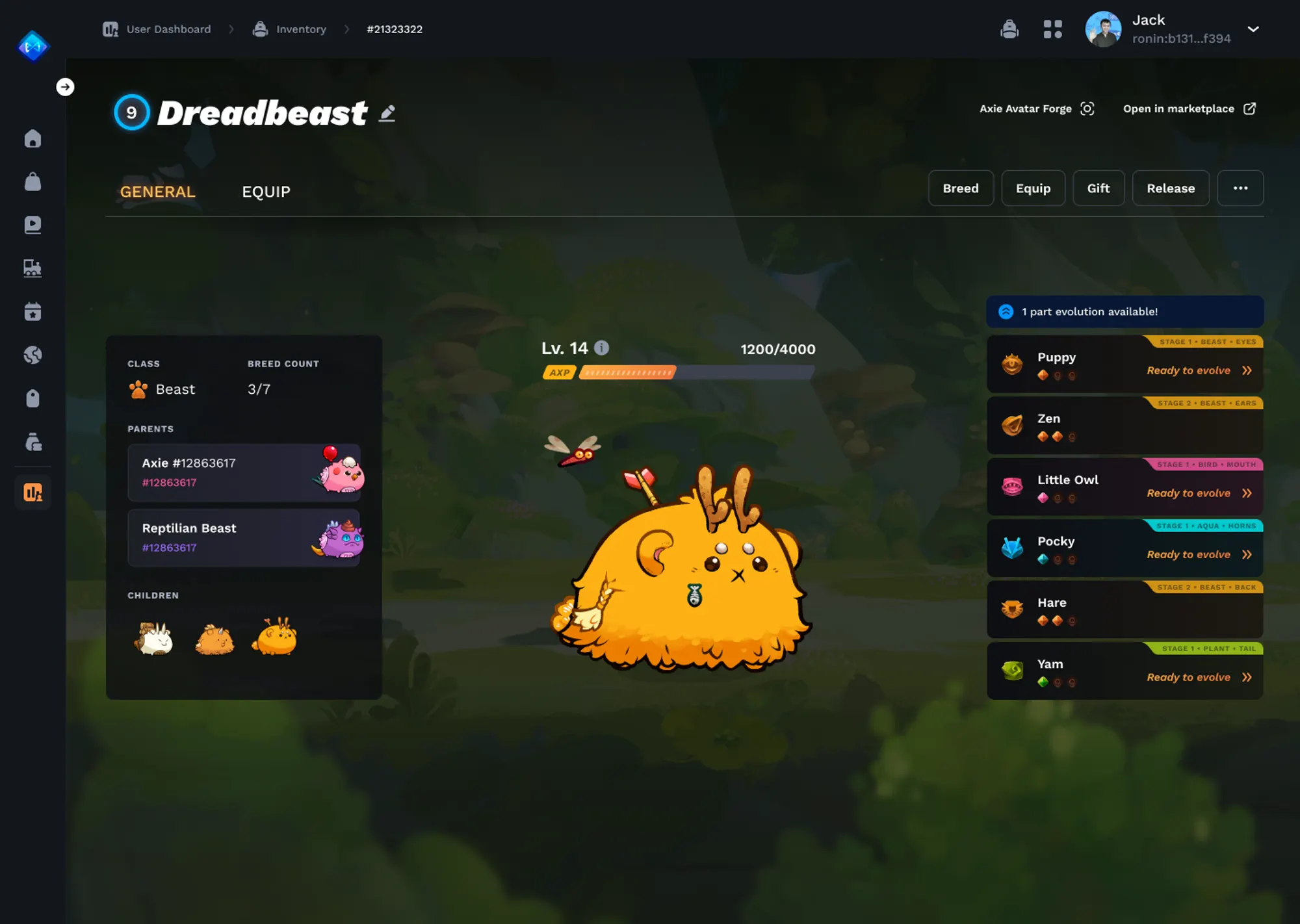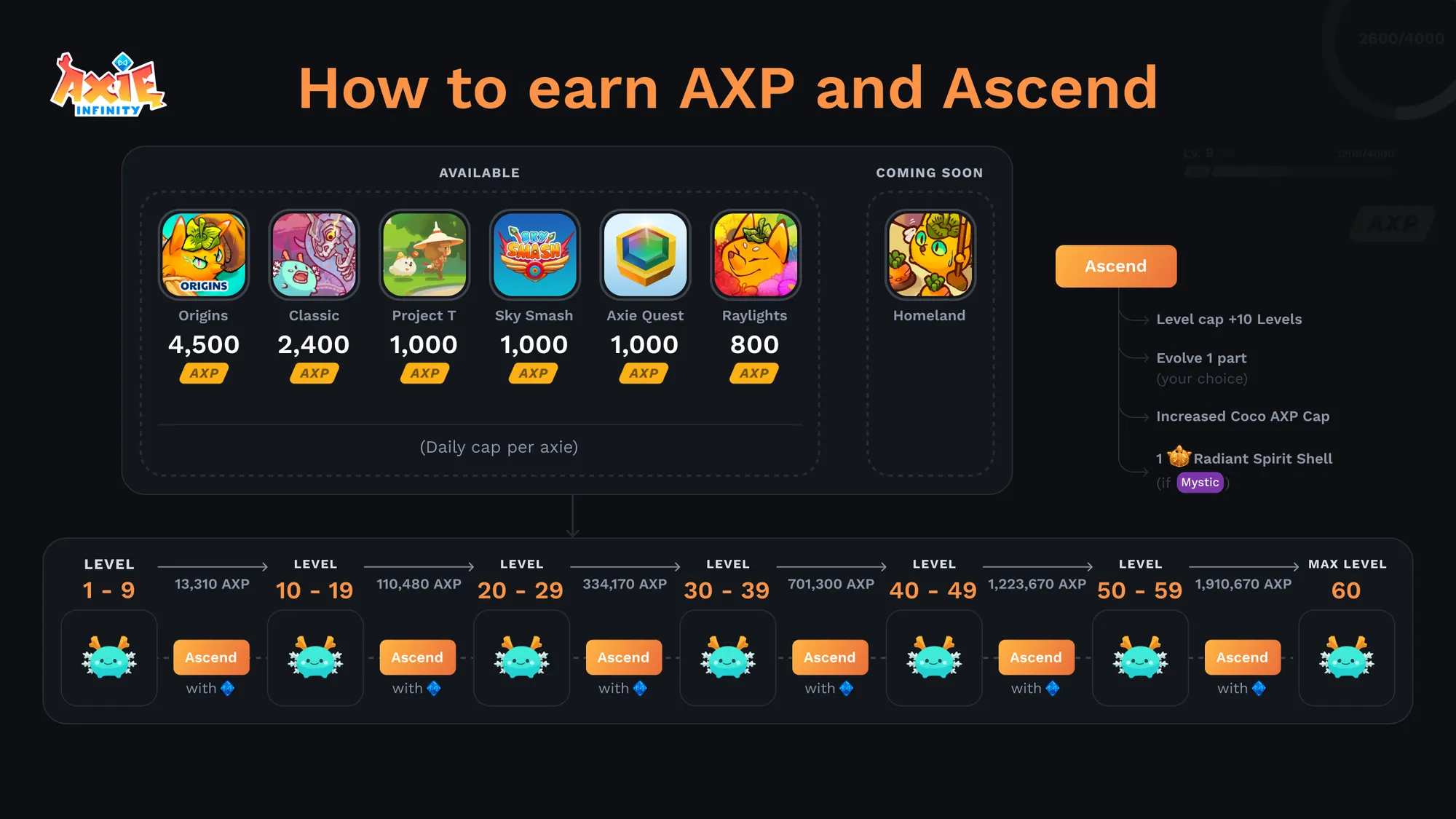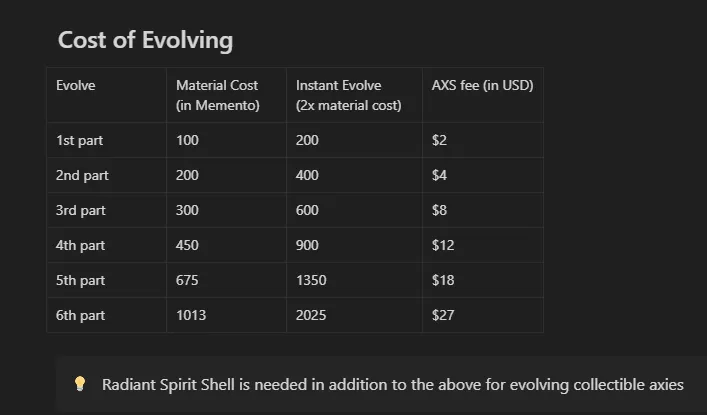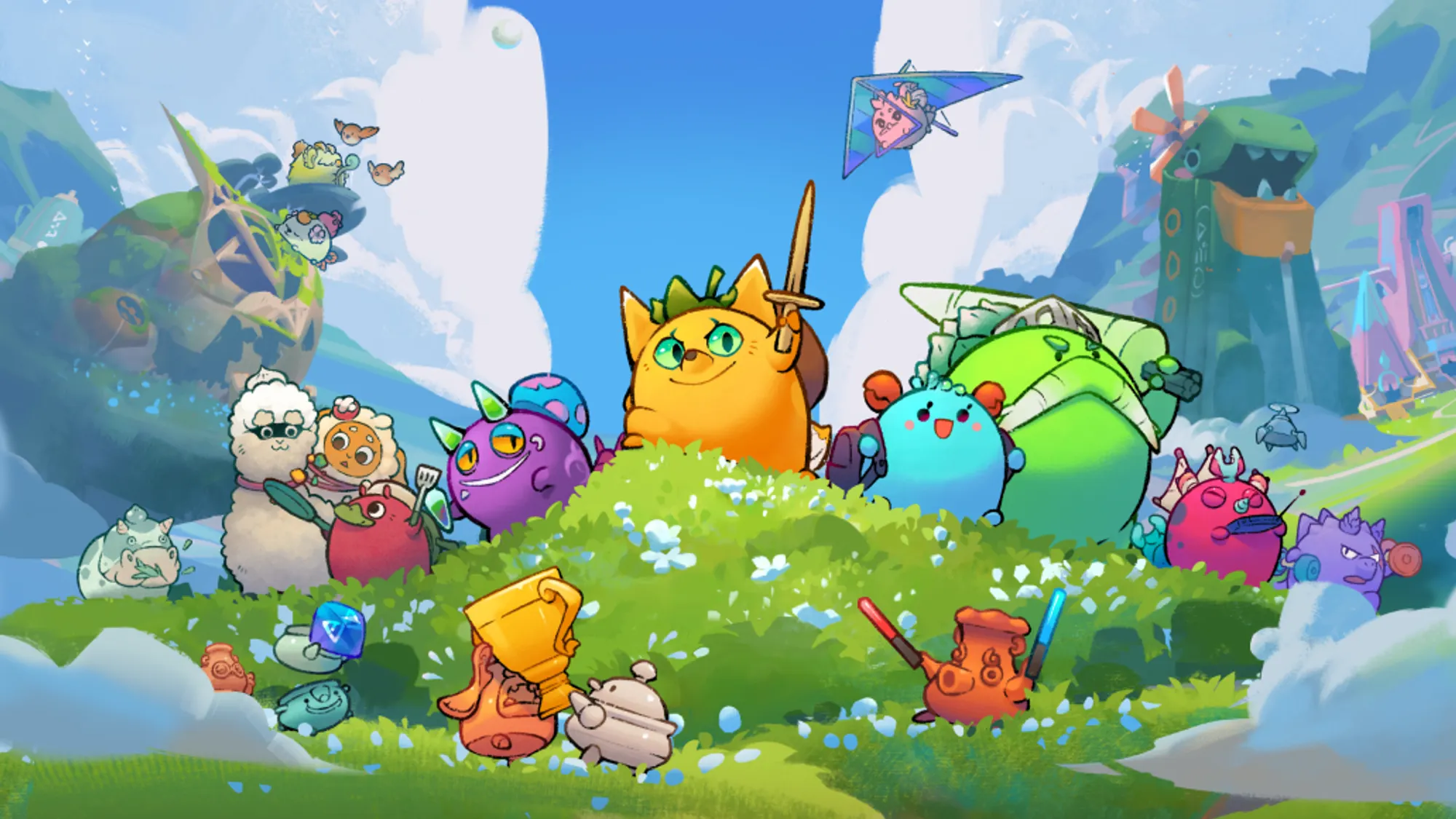Monster NFT characters in play-to-earn game Axie Infinity can soon be upgraded thanks to a major update that brings a “Stage 2” evolution to every Axie monster, details of which the game’s developers at Sky Mavis have exclusively shared with Decrypt.
Over 250 different Axie “parts” can be evolved on any Axie NFT beginning December 14, upgrading the character’s battle strength and aesthetic look.
“We’re turning Axies into digital collectibles that evolve as you play with them,” Sky Mavis co-founder Jeffrey “Jiho” Zirlin told Decrypt in an interview. “This has been something that’s actually been at the core of our vision for over five years now.”
The breakthrough NFT game—in which players use cards to battle Axies against enemy Axies—first launched in 2018. Since then, Axie Infinity and its broader Ronin blockchain ecosystem has seen millions of players, faced a staggering $622 million hack, and then recovered roughly $30 million of the funds six months later.
First glimpse of level 2 JP.
Every collectible part has a level 2 counterpart.
Sup. pic.twitter.com/6MFueWDags
— Jihoz.ron 🦌 (@Jihoz_Axie) December 8, 2023
“An Axie—compared to a CryptoKitty—seemed like it was living, it was breathing. It was animated,” Zirlin said, comparing the axolotl-like Axie NFTs to the CryptoKitties NFT collection that launched on, and infamously clogged, Ethereum’s mainnet in 2017.
The Axie team will also release a 20-page comic and an animated video detailing the lore behind the Axie upgrades. In the comic, characters Ema and Bing must find “spirit shells”—the spirits of creatures in the Axie world of Lunacia. Bing then discovers the Atia Temple, a special place where Axies can evolve.
To upgrade their Axies, NFT owners will have to use crafting materials or “burn” other Axies, removing them from the blockchain entirely in order to upgrade one Axie of their choice, Zirlin explained.

Players will need to reach level 10 and be “ascended” for one part to evolve. Only one Axie part can be evolved at a time. Players will then have to use radiant spirit shells and “mementos” that match their Axie’s type to start the evolution process, which will take 36 hours to finalize (mementos are blob-like objects and come in Beast, Bird, Aquatic, Bug, and Dawn types).
Gamers wishing to speed through this waiting time will have to pony up an extra 200% in materials cost to see their Axie part evolve instantly, according to documents from Sky Mavis.

“We've seen some, let's say, disasters over the last year where NFT projects would need funding, or their communities wanted new content, so they would mint an entirely new collection. And that would basically crash the market for their NFTs,” Zirlin said. “Dynamic NFTs and evolving NFTs allow developers to introduce new content without expanding the supply of their initial collections.”
And there certainly is a large existing supply of Axie NFTs. There are over 11.9 million different Axie NFTs at time of writing, according to data on its official marketplace, distributed across 1.9 million different crypto wallets. Some Axie NFTs can be purchased for just a few dollars worth of Ethereum, while others are still selling for thousands of dollars.
Axie’s artist Masamune hand-drew every single “evolved” Axie part that players can discover, Zirlin shared.
It’s worth noting that Axie parts can only be upgraded to the next level of that specific part—they can’t be upgraded to a different random part entirely. And upgraded Axie NFTs will exist in their level-two form across all Axie games, so it won’t just be specific to Axie Infinity.

“All of the Axie games will now be linked together through a shared system of experience points, crafting materials, and progression,” Zirlin said. “Vertical progression has been something that hasn’t really been executed well yet in NFTs.”
This year, Sky Mavis has continued to bring more game developers onto Ronin while expanding the Axie brand. Last month, the Pixels browser game’s migration to Ronin arguably helped reignite interest in the title. Sky Mavis also loosened its commercial use restrictions on some of its Axie NFTs, allowing rare Axie owners to launch their own projects using their NFT IP.
Edited by Andrew Hayward





